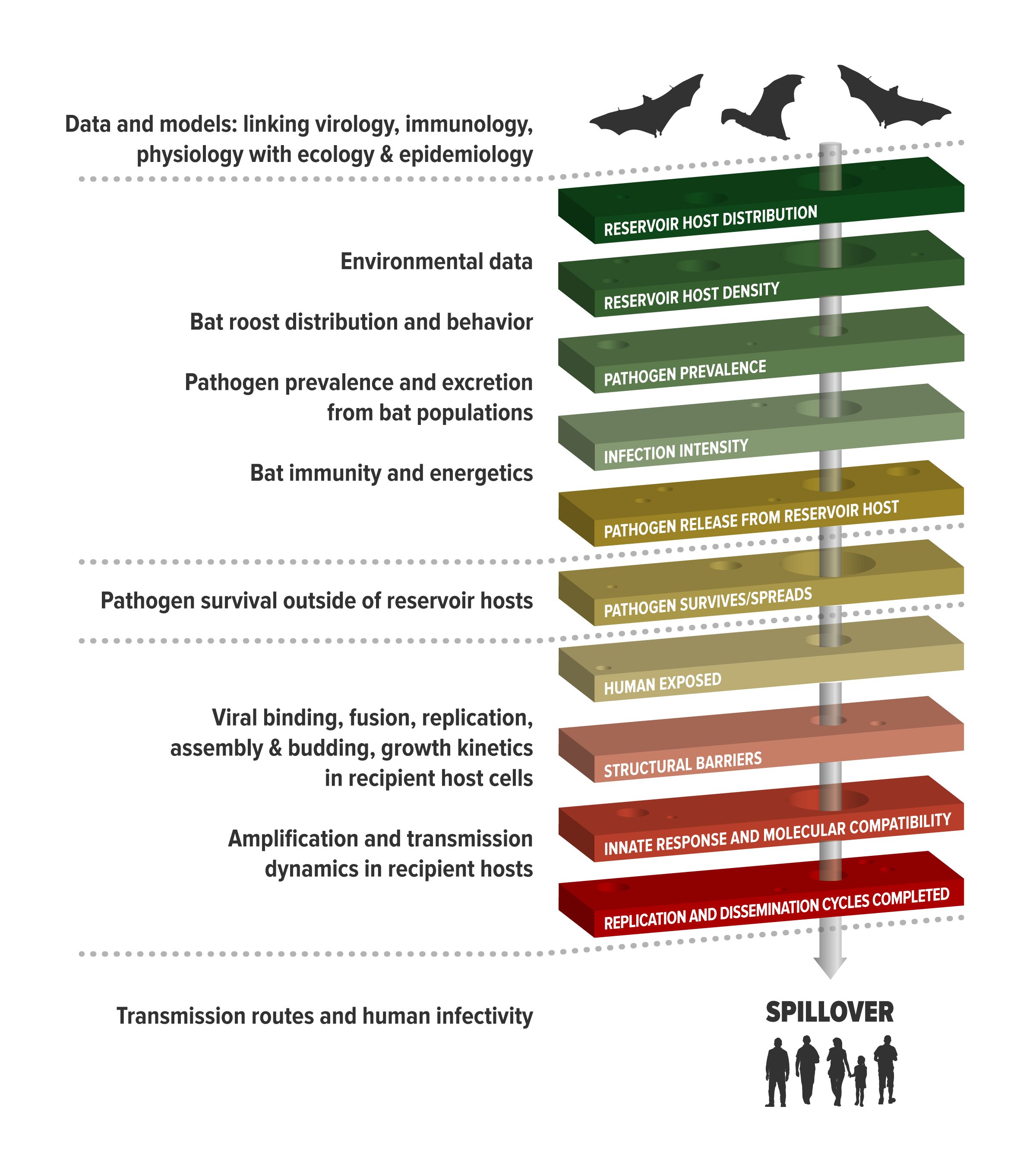What We Do
Our laboratory is dedicated to understanding and preventing zoonotic spillover— the transmission of pathogens from animals to humans. Spillover is the triggering event of a pandemic, and by uncovering the conditions that lead to spillovers, we can stop outbreaks before they start.
We take a transdisciplinary approach—combining evolutionary biology, ecology, environmental science, immunology, virology, and social sciences—to uncover the mechanisms driving disease emergence. Through field research, laboratory experiments, and modeling, we generate actionable insights that inform public health strategies and policies.
Our goal is not just to respond to pandemics, but to prevent them—by working alongside communities, informing policy, and addressing root causes like habitat loss, climate change, and social vulnerability. We are working to build a safer, more resilient future for everyone.
To accomplish these goals, our research focuses on four research questions:
How do pathogens cross species barriers to cause a spillover event?
How do environmental stressors, including land-use change and climate change, drive the dynamics of pathogens within reservoir host populations and risk of spillover to other species?
How can we prevent pandemics by preventing spillover?
What is the best way to implement our science for protection of ecosystem, wildlife, and human health?
We translate our scientific findings regarding disease dynamics into the public sphere.
Our goal is to inform meaningful public policy and, hence, more effective public health practices to best reduce or eliminate potentially devastating spillover events.
The hierarchical processes of spillover and some of the data we are collecting to predict spillover (from Plowright and Hudson 2021).
This 3-minute animation summarizes our 2023 Nature paper, demonstrating how habitat loss interacts with climate variation to drive Hendra virus emergence and spillover.
This animation explains the concept of allostatic load and its role in zoonotic spillover, highlighting how stress in wildlife can influence pathogen emergence and transmission.
News
Dr. Plowright is the PI of multiple projects on pathogen spillover from bats, including the collaboration Bat One Health. Bat OneHealth, is a global team of experts working across multiple scales to learn the causes of spillover and find sustainable solutions that protect future generations from zoonotic disease.









